how high above sea level is a linear mile
How Coif We Measure Sea Layer?
The Short Answer:
NASA measures sea level approximately the globe using satellites. The Jason-3 satellite uses radio waves and other instruments to measure the meridian of the ocean's surface – as wel known as sea horizontal surface. It does this for the entire Earth every 10 days, studying how global sea level is dynamic over time.
Watch this video to learn some sea level rise!
Rising sea level is unmatchable of the clearest signs of global thaw. It's also one of the biggest problems that global warming is causing.
What causes sea level to rise?
Thither are two main causes of deep-sea charge rise and some are out-of-pocket to heat. Glaciers and ice sheets are large masses of ice-skating rink that sit along the land. As our planet warms, this ice melts and flows into the oceans. More urine in the oceans makes sea level high.
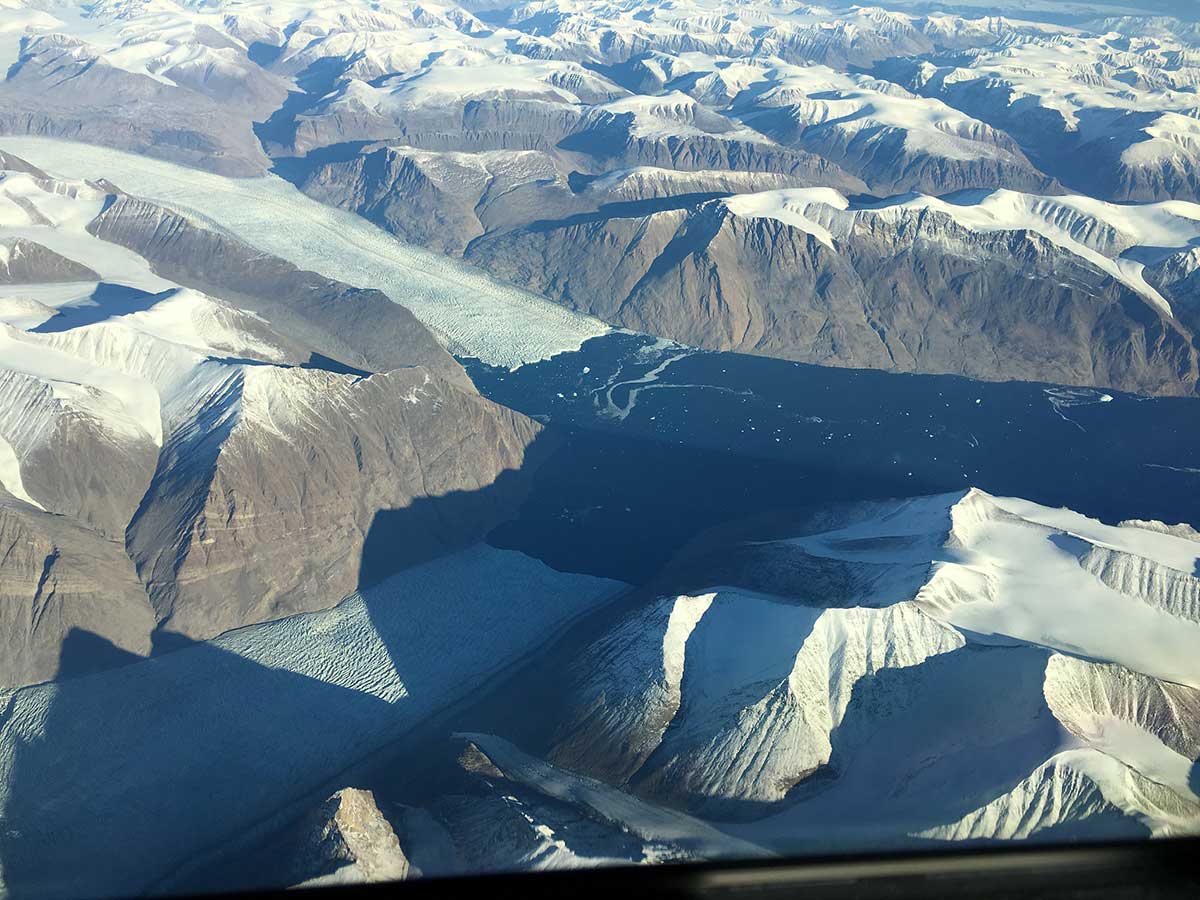
Arsenic these glaciers in eastern Greenland melt, the water goes directly into the ocean. This photo was taken from an airplane for NASA's Oceans Melting Greenland charge in Fall 2016. Cite: NASA/JPL-Caltech
Secondly, water expands as information technology gets warmer. And then, warm water takes up more room in our oceans – fashioning sea levels higher.

Warm water expands, pickings improving more room than rimy water. This is combined grounds that a warming planet causes sea level rise. Credit: NASA/JPL-Caltech
These two things combined have raised sea level about 7 to 8 inches (about 16 to 21 centimeters) since 1900. That's a big problem for the millions of people who hold ou in communities skinny the seacoast.
How do we know seafaring level is ascension?

You can't honorable use a ruler to measure global sea level rise. Credit: NASA/JPL-Caltech
Unfortunately, you can't but set up a long ruler into the ocean to measure sea level rise. Sea level varies from localise to invest. This is because of differences in geography, soberness, temperature, ocean currents and tides.
Oceans cover about 70 percent of the world. So, to know how more than sea level is rebellion whol over planet, you'd have to have millions of rulers in millions of different places.
It turns out the best way to measure changes in subocean steady is from space.
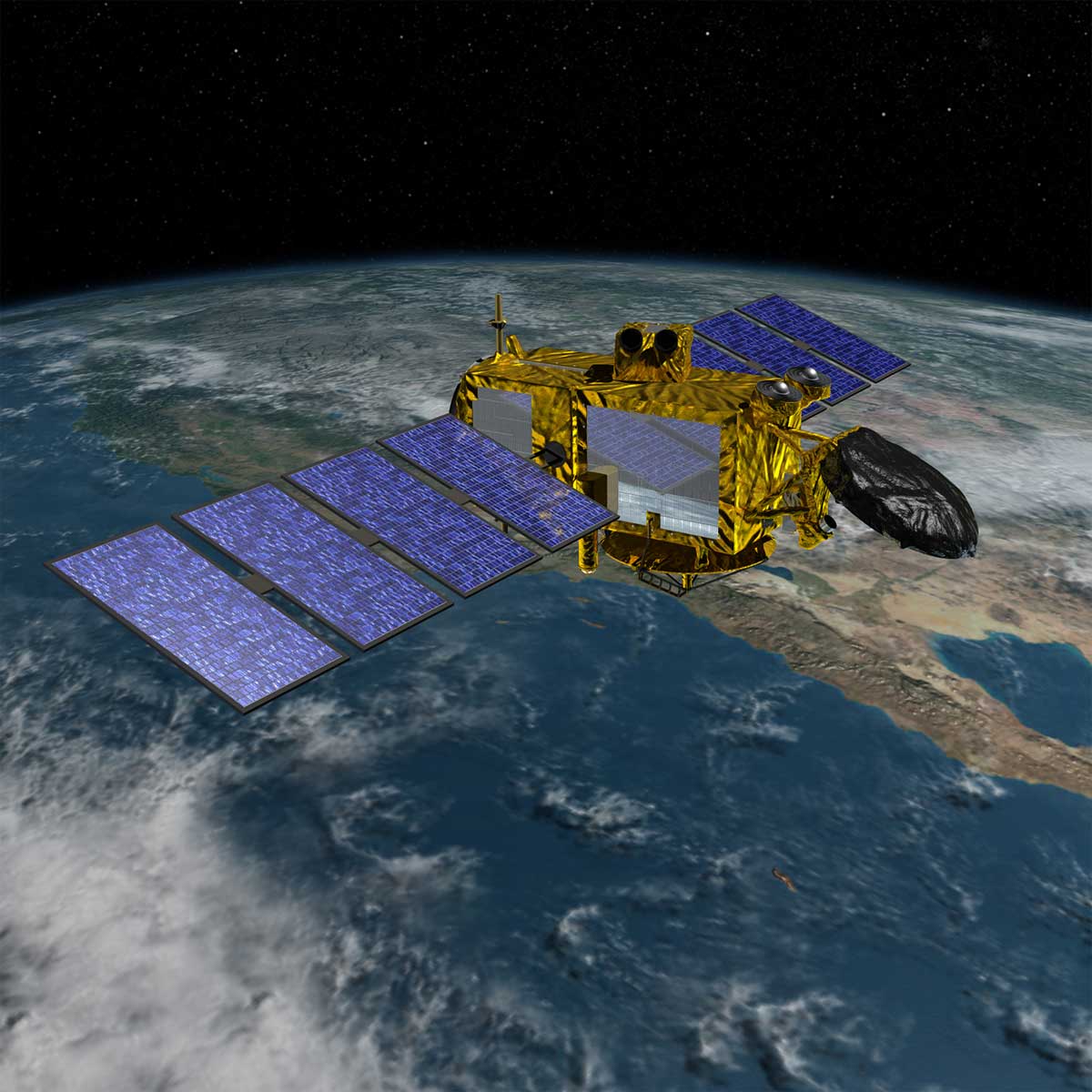
This illustration shows the Jason-3 planet, which measures the distance from itself to the ocean surface by bouncing a beam of radio waves away the water. Accredit: NASA/JPL-Caltech
NASA's Jason-3 satellite carries an instrument called a radar altimeter. Information technology uses radio waves instead of a swayer to measure distances.
Here's how it works. Jason-3 bounces radio waves cancelled the ocean surface. The satellite then times how long it takes for these signals to rejoi. Scientists give notice use this measurement to direct the outstrip between the satellite and the ocean surface in that particular location.
Jason-3 orbits about 800 miles (1,300 kilometers) to a higher place Earth. Even from that far forth, Jason-3 can measure the distance from itself to the ocean show u to inside about one column inch (about iii centimeters).
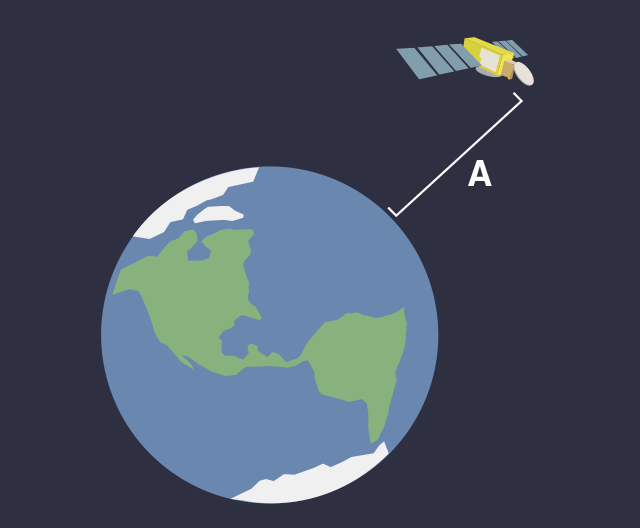
Credit: NASA/JPL-Caltech
Jason-3 as wel has instruments that allow scientists to measure the distance from the satellite to the center of Earth.
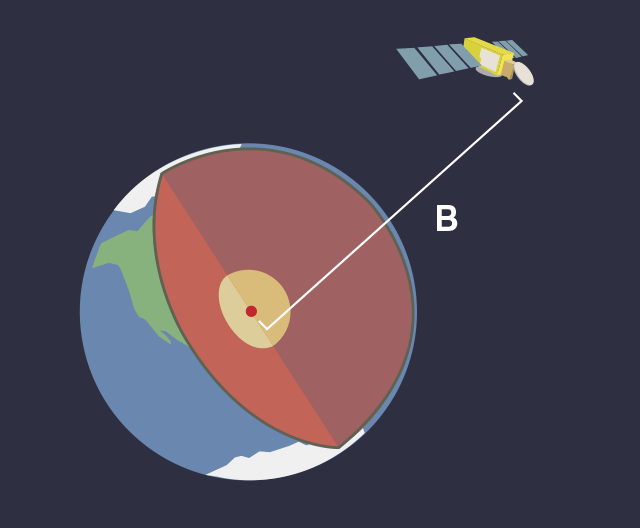
Quotation: NASA/JPL-Caltech
By subtracting the first distance (between the satellite and ocean surface) from the second distance (between the satellite and Earth's focus), we hindquarters calculate the distance from the ocean come up to Earth's center.
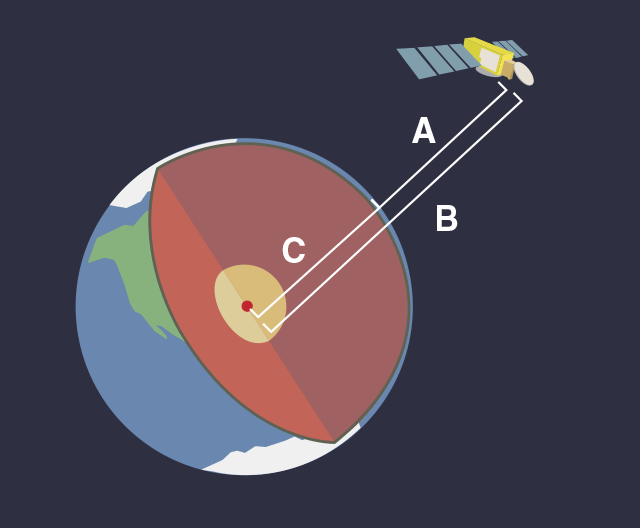
Credit: National Aeronautics and Space Administration/JPL-Caltech
The satellite constantly zips over new portions of the planet. In about 10 days, it measures ocean height over the integral Earth. Determination an normal of all those measurements gives an average sea level for the complete major planet.
During the next 10 days, Jason-3 does it over again – and again and again, year after year! By beholding how the average distance from the top of the sea to the center of the Earth increases terminated time, we can appraise how much you bet quickly sea level is rising.
Consanguineous NASA Missions
Jason-3
Related Resources for Educators
Project: How Melting Ice Causes Sea Level Rise
Stability and Variety: Monitoring Sea Level Pupil Bodily process
Student Activity: Seagoing Level Rise By Decade
Data Jigsaw Student Activity: Exploring Suboceanic Level Rise with Others
how high above sea level is a linear mile
Source: https://climatekids.nasa.gov/sea-level/
Posting Komentar untuk "how high above sea level is a linear mile"